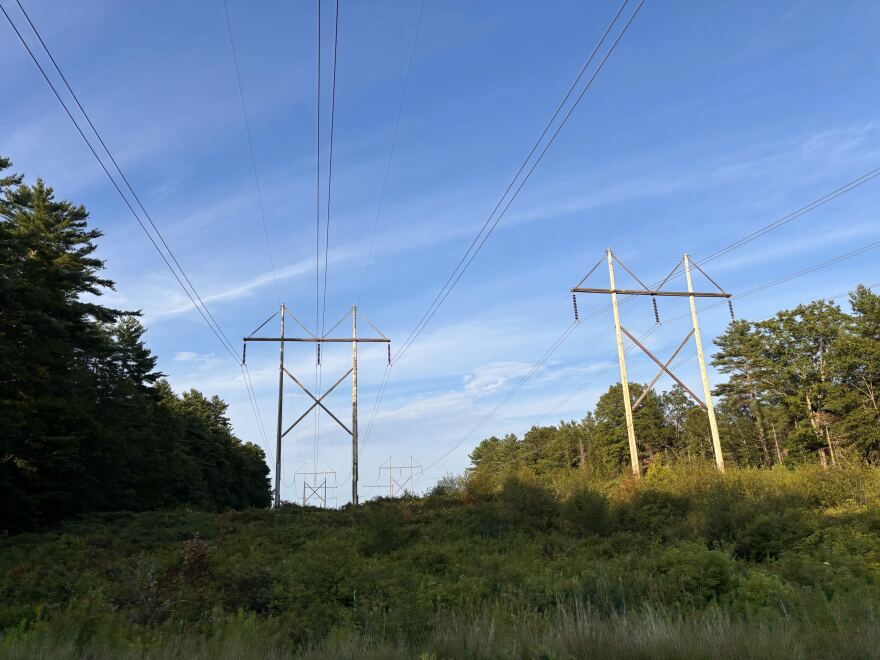Mainers' power bills will go up again in 2026 after the Maine Public Utilities Commission approves new annual contracts to supply electricity to the state's investor-owned transmission and distribution utilities.
Commissioners said increasing costs were linked to rising prices of natural gas across the country. About half of the power used in New England is generated by power plants that burn natural gas.
The PUC said electric rates for Central Maine Power Customers and Versant's Bangor Hydro District customers would go up about $11 a month, or $132 a year.
Versant's Maine Public District in far northern Aroostook County will see bills go up $16 a month, almost $200 a year.
Every year, the commission undergoes a competitive bidding process to select electricity suppliers that provide Versant and CMP customers power through a regulated rate called the standard offer.
Electricity supply makes up half of Versant customers' bills and 40% of CMP bills. The remainder is transmission and distribution fees and "public policy" charges that cover some of Maine's renewable energy initiatives, according to the commission.
"We recognize that rising energy costs create real challenges for Maine households and businesses,” PUC chair Philip Bartlett said in a press release.
"The Standard Offer reflects current market realities and the Commission remains committed to securing the lowest reasonable prices for Maine electric utility customers in a challenging energy environment," Bartlett added.
Wholesale natural gas prices across the country are expected to be about 58% higher in 2025 than they were the year before, according to the U.S. Energy Information Administration. Gas prices for electric generation specifically are up 37%, according to the agency.
Andrew Price, president and CEO of Competitive Energy Services, a consulting group in Portland, said several factors are driving demand.
Price said the U.S. is exporting more natural gas than ever before. At the same time gas demand is soaring to fuel generators that power Artificial Intelligence data centers and consumer electrification such as heat pumps and electric vehicles.
Despite years of adding renewable wind and solar generation onto the New England grid, it still relies on gas generators, Price said.
But pipeline supply to New England is constrained, so Price said when demand for residential gas spikes in the winter, there's not enough for power plants and that contributes to high prices.
"The system has to fall back on liquified natural gas that's imported, or oil, and so we do see higher prices here in New England than other places in the U.S. because of that pipeline constraint that really hits in those peak months," Price said.
In a statement, Maine Department of Energy Resources acting commissioner Dan Burgess said that a dependence on fuels directly tied to global markets continues to subject Maine families to volatile energy costs.
"Affordability remains a top priority for the Department as we work to advance initiatives to address this urgent challenge by expanding energy efficiency, ensuring ratepayer investments are carefully considered, and expanding responsible clean energy production to help stabilize costs," Burgess said.
The contracts approved by the PUC will push electric prices to the highest point since 2022, when Russia's invasion of Ukraine disrupted international gas markets.
In a statement, CMP spokesperson Dustin Wlodkowski said rising supply rates were a direct consequence of state policymakers' decision to deregulate the electricity market 25 years ago which divorced power generation companies from transmission and distribution companies.
"To be clear, these charges do not generate profit for CMP. We are legally required to collect them on behalf of power generators, and Mainers see no benefit in terms of grid investments, improved reliability, or job creation," Wlodkowski said.



